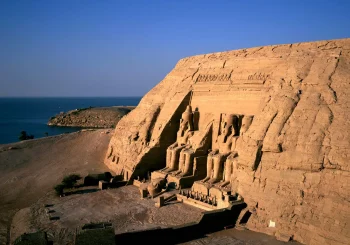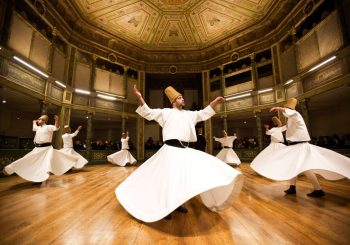The first day of my summer vacation of 1999 was spent road-tripping to Egypt’s once glistening summer gem, Al-Maamoura. In Al-Maamoura, summer mornings meant soaking in the broad sun-stoned beaches, and nights meant gazing at the summer moonlight—all soft and fair. It is a place of nostalgia, now overshadowed by lack of upkeep. Al-Maamoura meant the days of simple pleasures—a place that is never forgotten.
To many Egyptians, it was famous for its corniche walks, bicycle rentals, grilled corn—which had a poignant smell— Al-Maamoura amusement park, and its once-iconic open beach cinema. The place is dotted with memories, but unfortunately, Al-Maamoura is far less frequented than before.
“We used to vacation at Al-Maamoura as a family when I was young, some of my oldest memories include renting bikes at the corniche, it was a must,” explains senior social media specialist Eman Selim. “One of the most unforgettable aspects about Al-Maamoura was the friendships we made there, which lasted all summer long.”
In its heyday, Al-Maamoura was frequented by those who chose to escape from bustling Cairo and its sweltering heat. It hosted a wide range of people—from celebrities to political figures—most notably late presidents Gamal Abdel-Nasser, Anwar El-Sadat, and celebrities such as film stars Farid Shawki, and Soaad Hosny.
It is regarded as one of Egypt’s most famous beaches, but opinions have differed on the origins of its name. Some refer its origins back to Khedive Ismail, who is believed to have changed its name from el kharab (ruin), while others attribute the name to King Farouk. The place, however, is believed to have existed since the Ptolemaic dynasty, which ruled Egypt following the death of Alexander the Great, and was known as Menouthis.
THE FAILED UPKEEP
What was once a place filled with green spaces and sparkly turquoise waters became a symbol of failed upkeep. It became a place besieged by issues, with garbage bags, streets that reek of sewage water, and tall illegal buildings that blocked the scenery of green spaces.
It was not long until people started seeking alternatives for summer vacations, especially with the expanding compounds in the North Coast.
“We used to have a summer house in Al-Maamoura, and we even used to grow mangoes, but we eventually stopped going to the North Coast because it was more accessible and preferable,” says social media executive Mariam Osama.
The issue of upkeep does not only concern Al-Maamoura, but also other areas in Cairo and beyond. Alexandria’ Al-Agami beach also fell victim to a lack of maintenance and care, which also suffered from unpaved narrow alleys and sewage water issues that became a hassle for its residents.
Moreover, it is also worth noting that gated communities have also contributed to the lack of preservation and visitation. Between the excuses of failed upkeep, it can be insinuated that fleeing of people to the gated compounds is a sign of social exclusion.
Unfortunately, for many people, gated compounds not only provide a sense of security, but also provide seclusion from the country’s poor, who are ultimately perceived as threatening because of their economic status.
Whether this remains true to all remains a lingering question, however, it does not negate the fact that Al-Maamoura—with all of its memories—will always remain etched into the hearts of all those lucky enough to have visited it.






Comments (0)